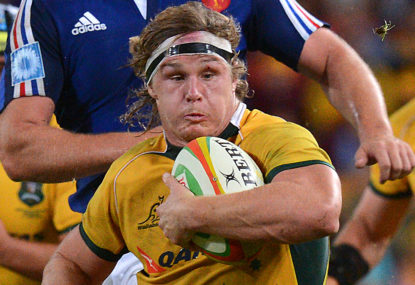Every language has certain words, not necessarily cuss words, that roll off the tongue easier and with more pleasure than a cold beer down your throat on a hot summer’s day.
In Afrikaans culture you get the word “gatvol”. To pronounce it correctly you need to have watched The Walking Dead, as the zombies or “Walkers” as they are affectionately known make the appropriate guttural sound to start off the word gatvol.
The “a” is pronounced similar to how you would use the “u” in bus. And the “t” is a hard t, no soft, ninny whimper t’s, but a hard one.
You see Afrikaans is not a subtle language like French, it is crude, guttural and has rough edges. But do not confuse this with how eloquently we can speak English, ignore those American movies that try to impersonate an educated Afrikaner speaking English.
Anyhow, the “v” is pronounced as an f, the “o” as the “a” in ball, and the “l” is, well just a l.
I suppose by now I have drawn you in and while you are trying your best to make the correct guttural noise to start practicing the word gatvol, you are intrigued as to why the word has such importance.
Allow me to take you back to the amateur era of rugby, a time when there were few camera’s, World Rugby was still known as the International Rugby Board, South Africa was still in sporting isolation and Nelson Mandela was serving his sentence on Robben Island.
The approach to rugby was simple then, although seen as a sport, it was about physical dominance, it was about beating the opponent on the score board, and if necessary at the rucks, scrums, line outs or any other contact situation that may have occurred.
If an opposition player stepped out of line, be it for yapping too much, engaging in off-the-ball incidents, committing obstruction or any other illegal or anti-rugby activity, he had what we call an attitude adjustment orientation.
The key for such an event to occur is that one of your players got gatvol. It simply means truly and utterly fed up.
Alas, we are now in an era where player safety is more of a concern than actual player management, which in itself is an oxymoron when you think about it.
World Rugby continually assess foul play, off-the-ball incidents and certain facets of the game to ensure player safety, and yet there is no law that prohibits a coach to play his players into the ground.
I am getting off track though, so back to the word gatvol. Let’s be straight about this, every player gets gatvol, and often the very same player getting gatvol has committed acts that were illegal, off the ball or niggled an opposition player.
Let’s just take Michael Hooper as a recent example. During Super Rugby he holds a player back to stop a play, and during the Rugby Championship he is held back by Nicholas Sanchez to prevent him from making a play.
The reason why players get gatvol is mostly due to incessant off the ball incidents where the opposition actually has intent to disrupt your play, they collectively attempt to halt any momentum or rhythm and thereby limiting the opportunities for your team to score points.
Often the hope would be that you get gatvol enough to retaliate and thereby earn a card.
It is however not always a team strategy, there are teams who employ enforcers to subtly and sometimes not so subtly undermine team cohesion and focus.
The problem with anti-rugby or negative rugby plays is that referees often miss them, they already have enough on their plate to concern themselves with an incident happening at a breakdown when play has already moved on.
The question is though, how does one stop anti-rugby practices and prevent players from getting gatvol?
As we are all for job creation in the current economic climate, I would suggest that at every match there should be an “Off-the-ball referee”
A guy purely on the lookout for incidents that can be deemed anti-rugby, or negative. In my view if you want to stop players from reacting (sadly they are the ones being pinged) then you need to ensure that it doesn’t come to that.
If a player is held back, or held into a maul, or tripped, head butted, slapped, tapped or knocked down, there should be an official on the lookout for such actions.
Citing a player after the match has been played and the result already set in stone is not good enough. The guilty player should be punished within the 80 minutes of the contest.
It is easy to sit on the side lines and criticise a player for retaliating, there are always words of wisdom such as “the player should be above it”, I myself have often used those words.
The reality though is somewhat different, you do get gatvol at times, when common sense does not prevail and on the spur of the moment you snap and you whack the daylights out of the transgressor, only to be carded, cited and taken to the cleaners by the judicial committee.
Anti-rugby or negative rugby is becoming a scourge in our game, whether it is diving like a stunt pilot onto the soft grass of Twickenham, Ellis Park or Eden Park. Grabbing a player by the privates as Adriaan Strauss endured against Samoa a few years ago, head butting someone like Bakkies Botha did, pulling a player back as Sanchez did a fortnight ago, or any other negative action that takes away from the quality of the game, it should be stopped and severely punished.
Otherwise players will continue to get gatvol and take the law into their own hands, and please let’s all stop having double standards when our team’s player is the victim. As Michael Hooper has proven this past fortnight, people with glass houses shouldn’t throw stones.





























































































